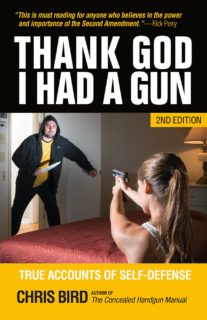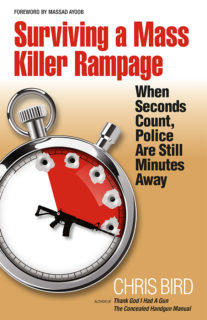Another Conservative Justice for The U.S. Supreme Court, Is It Enough?
By
Chris Bird
If Judge Brett Kavanaugh is confirmed to be the next U.S. Supreme Court associate justice, will it be enough to get the Court to take up more Second Amendment cases?
Kavanaugh was named July 9 by President Trump to be his pick to replace Justice Anthony Kennedy who has decided to retire. As promised, Trump is seeking to replace Kennedy, who was often a swing vote on the court, with a conservative. There is no doubt Kavanaugh is a conservative, judging by his record as a judge in the U.S. Court of Appeals for the D.C. Circuit.
He has a solid Second Amendment record. In 2011, he bucked the majority of a three-judge panel that held the District of Columbia’s ban on many semi-automatic military-style rifles was constitutional. In his dissenting opinion, Kavanaugh wrote that the Heller decision by the Supreme Court held that semi-automatic handguns were legal for ordinary citizens to own.
“There is no meaningful or persuasive constitutional distinction between semi-automatic handguns and semi-automatic rifles. Semi-automatic rifles, like semi-automatic handguns, have not traditionally been banned and are in common use by law-abiding citizens for self-defense in the home, hunting, and other lawful uses,” he stated.
Kavanaugh also opined that D.C.’s registration of all privately-owned guns is not constitutional because “the vast majority of states” do not require registration of lawfully-owned guns. (Texas does not have any registration system for lawfully-owned guns.)
If Republican senators stick together and confirm Kavanaugh, with or without help from Democratic senators up for election in red states, the future looks bright for the Second Amendment.
The landmark Heller case in Washington D.C. in 2008 and the subsequent McDonald case in Chicago in 2010 confirmed the right of citizens to keep arms. But it was a little vague on the bearing of arms in those cases. Since then the Supreme Court has declined to hear any Second Amendment cases.
On June 26, the Supreme Court declined to hear a Second Amendment case from the People’s Republic of California. The majority of justices gave no reason for turning the case down. It involved the San Diego County sheriff’s interpretation of a state law so narrowly that it rejected almost all applications for concealed carry licenses. “Simply fearing for one’s personal safety” is not sufficient for a license to be issued. An application has to be accompanied by documentary evidence that the applicant is “in harm’s way.”
In a stinging rebuke to the rest of the court, Justice Clarence Thomas, joined by Neil Gorsuch, accused the court of treating “the Second Amendment as a disfavored right.”
He pointed out that in the seven years since McDonald vs. Chicago, the Supreme Court has heard no Second Amendment cases while hearing 35 cases concerning the First Amendment and 25 cases about the meaning of the Fourth Amendment.
“This discrepancy is inexcusable, especially given how much less developed our jurisprudence is with respect to the Second Amendment compared with the First and Fourth Amendments,” Thomas wrote.
“For those of us who work in marbled halls, guarded constantly by a vigilant and dedicated police force, the guarantees of the Second Amendment might seem antiquated and superfluous. But the Framers made a clear choice: they reserved to all Americans the right to bear arms for self-defense. I do not think we should stand by idly while a State denies its citizens that right, particularly when their very lives may depend on it.”
When Kavanaugh gets confirmed – let us be optimistic here – that will make three strong Second Amendment supporters on the Court. But it takes four justices to grant a hearing for a case before the Court. So will Justices Thomas, Gorsuch and Kavanaugh be able to persuade a fourth justice to join them in taking up questions of bearing arms? We will have to wait and see.



